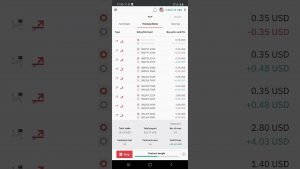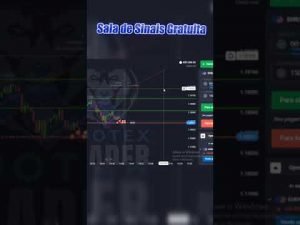#shorts #livetrading #viral #tranding #deriv #zeebusiness #livetrade #shortshow #trending #edit
Live trading
Live profit
Fx Trading Zone
deriv,deriv trading account,deriv account,how to create deriv account,deriv trading,forex trading,deriv trading strategies,how to create a real deriv trading account in 2023,deriv account verification,deriv trading account opening,how to create deriv real account,how to open account in deriv,trading,binary trading,how to create new account in deriv,how to create multiple deriv trading accounts,how to create account in deriv full review,index trading
Intraday trading, also known as day trading, is a type of trading in which securities, such as stocks, bonds, and commodities, are bought and sold on the same day. Intraday trading is a popular type of trading among investors because it offers the potential for high returns, as well as the ability to profit from short-term price movements. In this YouTube video, we will discuss intraday trading in share bazar in detail, including its definition, advantages, disadvantages, and strategies.
Definition of Intraday Trading
Intraday trading is a type of trading in which traders buy and sell securities, such as stocks, bonds, and commodities, within the same trading day. In other words, intraday traders hold positions for a very short period of time, typically a few hours or minutes, and close them before the end of the trading day. The goal of intraday trading is to profit from short-term price movements and fluctuations in the market.
Advantages of Intraday Trading
There are several advantages of intraday trading in share bazar, including:
High Potential for Returns: Intraday trading offers the potential for high returns, as traders can make profits from short-term price movements. If a trader buys a stock at a lower price and sells it at a higher price within the same day, they can make a significant profit.
Low Capital Requirement: Intraday trading requires a lower capital investment compared to other types of trading, such as swing trading or position trading. This makes it more accessible to small traders who have limited capital to invest.
Quick Results: Intraday traders can see quick results, as they are not holding positions for a long period of time. This allows traders to make multiple trades in a day and capitalize on short-term price movements.
Lower Risk: Intraday trading involves lower risks compared to other types of trading, such as swing trading or position trading, as traders are not holding positions for a long period of time. This reduces the risk of overnight price fluctuations or market shocks.
Disadvantages of Intraday Trading
There are also several disadvantages of intraday trading in share bazar, including:
High Volatility: Intraday trading is more volatile compared to other types of trading, as traders are dealing with short-term price movements. This makes intraday trading more risky and unpredictable.
High Stress: Intraday trading can be very stressful, as traders need to make quick decisions and act fast in a highly volatile market. This can lead to emotional decision-making and impulsive trading, which can result in losses.
High Transaction Costs: Intraday trading involves multiple trades in a day, which can result in high transaction costs, such as brokerage fees and taxes. This can eat into the profits of the trader.
Time-Consuming: Intraday trading requires a lot of time and effort, as traders need to constantly monitor the market and make quick decisions. This can be challenging for traders who have other commitments or a full-time job.
Intraday Trading Strategies
There are several intraday trading strategies that traders can use to make profits in share bazar, including:
Scalping: Scalping is a popular intraday trading strategy that involves making multiple trades in a day to profit from small price movements. Scalpers hold positions for a few minutes or seconds and aim to make small profits on each trade.
Momentum Trading: Momentum trading is a strategy that involves buying stocks that are showing strong upward momentum and selling them before they start to decline. This strategy requires quick decision-making and a good understanding of market trends.
Breakout Trading: Breakout trading is a strategy that involves buying stocks that have broken through a resistance level or a




![Vale a pena ser DONO de uma SALA DE SINAIS? Ele fatura MILHÕES todos os meses. [ IQ Option ]](https://daytradebrasil.com.br/wp-content/uploads/2022/08/vale-a-pena-ser-dono-de-uma-sala-300x169.jpg)


